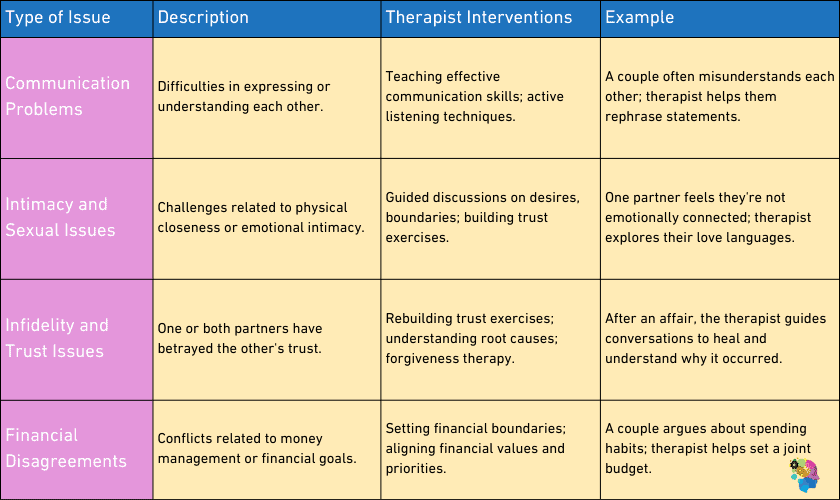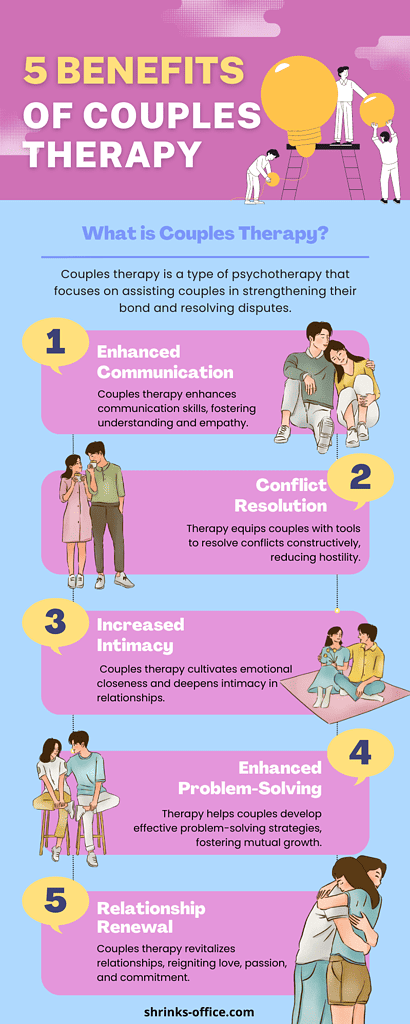The Surprising Benefits Of Seeing An Online Therapist
- Accessibility
- Convenience
- Flexible scheduling
- Anonymity
- Greater choice of therapists
- Cost-effectiveness
- Comfort
- Consistency
- Access to specialized services
- Reducing stigma
This blog will explore some of the many benefits of online therapy. As the world becomes increasingly digital, many people are turning from traditional counseling to online therapy to seek mental health care and support. While some may be skeptical about the effectiveness of online therapy treatment, research has shown that it can be just as effective as traditional in-person therapy, with several additional benefits.
Interesting tip
Online influencers can help normalize therapy, making it accessible. Their experiences with online therapy can inspire you to seek help too!
Accessibility and Convenience
One of the most significant benefits of online therapy is its accessibility and convenience. The online treatment eliminates the need for clients to seek in-person therapy, which can be particularly helpful for those who live in remote or rural areas, have mobility issues, or find it challenging to take time off from work or school.
With these online mental health treatment services, clients can easily schedule appointments at a convenient time without worrying about transportation or childcare. [1]

Anonymity and Privacy
Online therapy provides an additional level of privacy and anonymity for mental health treatment. For some clients, walking into a therapist's office can be intimidating or uncomfortable. Online therapy can give a sense of safety and security, as clients can participate in treatment from the comfort of their own homes.
Online therapy can also benefit those dealing with sensitive mental health issues or stigmatized issues, such as anxiety disorders, addiction, or trauma. [2]
Flexibility
Online therapy offers greater flexibility for both clients and therapists. With online treatment, therapists can offer extended hours or weekend appointments, which can be helpful for clients with busy schedules.
Additionally, online therapy can benefit clients who travel frequently, as they can continue their online sessions from wherever they are in the world. [3]
Increased comfort
Online therapy can be more comfortable for some clients than traditional therapy. For example, clients uncomfortable with face-to-face interaction may find it easier to open up in an online environment. Additionally, clients who struggle with a social anxiety disorder or agoraphobia may find online therapy less intimidating than traditional therapy. [4]

Potential for greater focus
Online therapy can lead to greater focus and more productive therapy sessions. Clients of online therapists can be more present and engaged during online sessions without the distractions of a physical office or waiting room.
Additionally, clients may be more likely to complete homework assignments or practice new skills between sessions, as they can easily access their therapist through online messaging platforms. [5]

Potential for greater connection
The lack of physical presence in online therapy can also lead to a greater connection between client and therapist. This is especially beneficial if clients struggle with physical or emotional boundaries, as there will be no pressure to maintain contact outside the digital conversations. [6]

More options
Online therapy provides clients with more options when selecting online counseling with a therapist. Clients can choose from a wider pool of licensed therapists regardless of location, enabling them to access mental health care with a therapist specializing in their specific needs. [7]
Cost-effective
Online therapy can be more cost-effective than in-person therapy, as clients do not need to pay for transportation or parking. Additionally, therapists may offer lower fees for online therapy sessions as they do not need to pay for physical office space. [8]
Better documentation
Online therapy can provide better documentation of any online therapy session as everything is recorded electronically. This can be helpful for both clients and therapists, as it ensures that all critical information is saved and easily accessible. [9]

More control
Clients may feel more in control during online and counseling services, as they can choose where they want to participate and can easily disconnect if they feel uncomfortable. This sense of control can lead to a more positive therapy and online counseling experience.
More comfortable environment
For some clients, being in their own environment can provide a sense of comfort and security that may not be present during an in-person therapy session. This can help them feel more relaxed and open during online counseling, leading to a more effective therapy experience.
Mental health professionals recognize the importance of creating a comfortable and safe environment for their clients, whether it's in person or online. [10]
Preparation for Your First Online Therapy Session: A Comprehensive Guide
Online therapy offers a convenient, flexible, and effective means of accessing mental health support. However, the first session can be a bit daunting, especially if you're new to the concept. This guide aims to prepare you for your initial online therapy session, offering you insights and tips to help you get the most out of your online counseling journey.
Understanding the Process
Before you embark on your first session, it's essential to understand what online therapy entails. This can help you set realistic expectations and ensure that you're comfortable with the process. Here are some key points to note:
- Communication Method: Online therapy can take various forms such as video calls, phone calls, or text-based conversations. Be sure to familiarize yourself with the communication method that your therapist prefers.
- Therapy Style: Just like in traditional therapy, different therapists may use different therapeutic approaches, such as Cognitive Behavioral Therapy, Psychoanalysis, or Humanistic Therapy. Understanding your therapist's style can help you prepare for the type of conversations and exercises you might engage in.
- Session Duration: Generally, online therapy sessions last for about an hour, but this can vary. Be sure to confirm the duration with your therapist to avoid any misunderstandings.
Setting Up Your Space
Creating a conducive environment for your therapy session is crucial. Here's what you can do:
- Find a Quiet Spot: Choose a place where you won't be disturbed during your session. A quiet room in your house could be ideal.
- Ensure Comfort: Opt for a comfortable seating arrangement. If possible, use headphones to enhance audio quality and maintain privacy.
- Check Your Tech: Test your internet connection, camera, and microphone ahead of time. Also, make sure your device is fully charged or plugged in.
Mental Preparation
Your mindset plays a significant role in the effectiveness of your therapy. Here are a few tips:
- Have an Open Mind: Approach therapy with a willingness to explore your feelings and discuss your issues.
- Be Patient with Yourself: Change takes time, so don't expect immediate results. Therapy is a process, and every step you take is significant.
Preparing Your Questions
It's natural to have queries during your first online therapy session. You might want to prepare questions like:
- What can I expect from online therapy?
- What is your confidentiality policy?
- How can I contact you outside the session, if needed?
Reflecting on Your Goals
Consider your expectations and goals for therapy. Are you looking to manage anxiety, cope with stress, improve relationships, or achieve personal growth? Clearly defined goals can help your therapist tailor the sessions to your needs. [10]
Helpful tip: Understanding the 6 Anxiety Recovery Stages can guide your healing journey. An online therapist can provide expert support at each stage!"
Choosing the Right Online Therapist: Your Personal Guide
Navigating the digital world of online therapy can be daunting, especially when faced with an abundance of therapists to choose from. The key to a successful therapy journey lies in selecting the right professional who aligns with your needs and preferences. This guide will walk you through crucial factors to consider when choosing an online therapist.
Check the Therapist's Qualifications
Primarily, it's important to ensure that your online therapist is appropriately qualified and licensed. Here are a few points to consider:
- Degree: Therapists should have a master's or doctoral degree in psychology or a related field from an accredited institution.
- License: They must be licensed by a state board to practice therapy. The specific title may vary—Licensed Clinical Social Worker (LCSW), Licensed Professional Counselor (LPC), Licensed Marriage and Family Therapist (LMFT), or a Psychologist.
- Specializations: Check if the therapist has specialized training in areas relevant to your needs, such as Cognitive Behavioral Therapy for anxiety or trauma-focused therapy for PTSD.
Consider Their Experience
Beyond qualifications, the therapist's experience plays a significant role in their effectiveness. You might want to explore:
- Years of Practice: Experience comes with time. Therapists who have been practicing for several years are likely to have a broader range of skills and insights.
- Experience with Your Issue: If you're seeking help for a specific issue, such as depression, addiction, or grief, it's essential to choose a therapist who has relevant experience.
Assess Therapeutic Approach
Therapists can use different approaches or 'modalities' to help you. Understanding these can help you decide what might work best for you. Common modalities include Cognitive Behavioral Therapy, Psychodynamic Therapy, Humanistic Therapy, and others. You might want to research these approaches to find one that resonates with you.
Establishing a Connection
Therapy works best when you're comfortable with your therapist. Therefore, consider these aspects:
- Communication Style: You'll want a therapist who communicates clearly and makes you feel heard and understood. They should be able to explain concepts in ways you understand.
- Empathy: Look for a therapist who shows genuine empathy. You should feel that they understand and care about your feelings and experiences.
- Comfort Level: You should feel comfortable sharing your thoughts and feelings with your therapist. If you don't, therapy might not be as effective.
Practicalities
Finally, consider practical factors that can influence your therapy experience:
- Availability: Check the therapist's availability to ensure it matches your schedule. Remember, consistency is crucial in therapy.
- Cost: Therapy fees can vary widely. Check if the therapist's fees fit within your budget. Some therapists offer a sliding scale based on income.
- Platform Used: Ensure you're comfortable with the technology the therapist uses for online sessions.
Initial Consultation
Many therapists offer an initial consultation, either free or at a reduced cost. Use this opportunity to ask any questions you might have and get a feel for the therapist's style and approach. [11]
Conclusion
Starting this form of psychological support may initially feel intimidating, but taking the plunge and trying out some suited online therapy services could offer immediate relief. Whether you prefer face-to-face meetings or online support, getting help is the first step toward recovery and stability by sorting out neglected mental health conditions.
FAQ
How do I know if seeing an online therapist is right for me?
The best way to know if teletherapy is right for you is to make contact with a licensed therapist and discuss what mental health services are suitable for your mental well-being. A qualified professional will be able to help you decide if this form of therapy would be beneficial or not.
What should I expect during my first session with an online therapist?
Your first session with an online therapist should be used to get acquainted and discuss the services available and what mental health treatment your therapist suggests. A qualified therapist will help you create a treatment plan tailored to your individual needs. This may include addressing any underlying issues, setting achievable goals, and developing strategies for achieving those goals. The right therapist or online counselor can also provide support and guidance throughout the process and put you on the right therapy journey.
References
- Centre for Psychotherapy: Online Counselling - The Pros and Cons
- Health Reporter: What Is Anonymous Therapy? Exploring the Concept
- Informa UK Limited: Features and benefits of online counseling: Trinity College online mental health community
- Helpguide: What is online therapy?
- CNBC LLC: This type of therapy can help people with depression be more productive at work: study
- Wearemore: 7 Benefits of Online Therapy: What It Is and How to Get Started
- University of Northern Iowa: Online counseling: effectiveness, benefits, roadblocks, and...
- quadcare: Top 10 Benefits of Telehealth for South African Patients and Doctors NOT A MENTAL HEALTH CLINIC
- My Online Therapy: What are the benefits of online therapy?
- My Online Therapy: What are the benefits of online therapy?
- Psychology Today: How to Prepare for Your First Virtual Therapy Session
- American Psychological Association: What you need to know before choosing online therapy







































